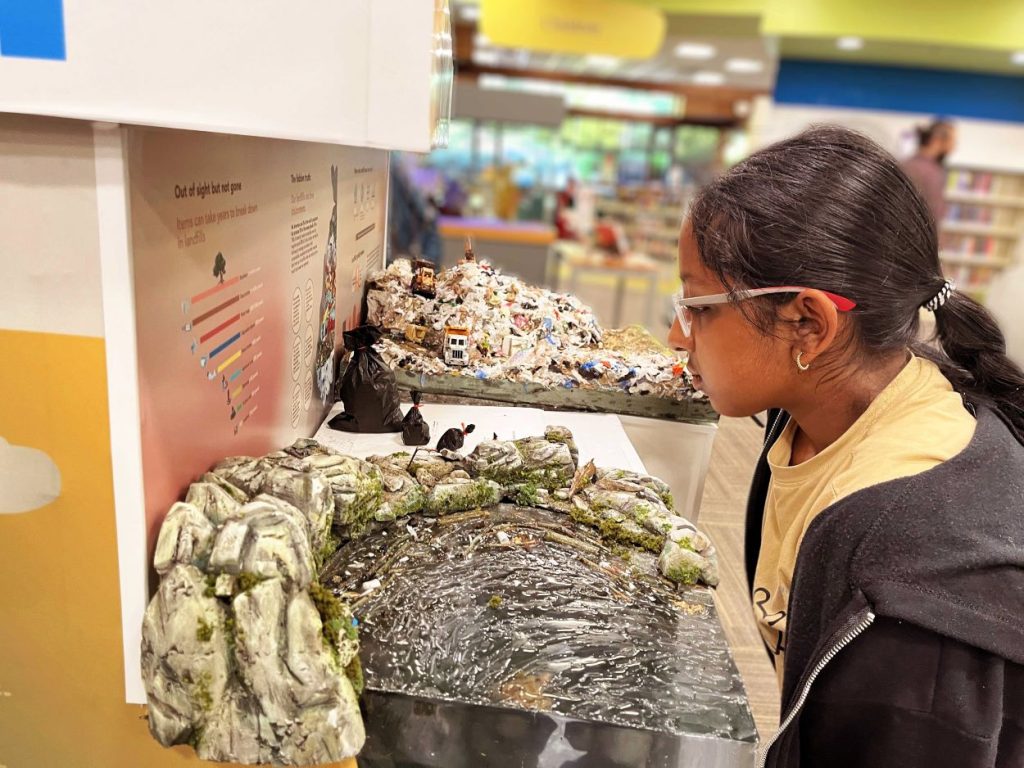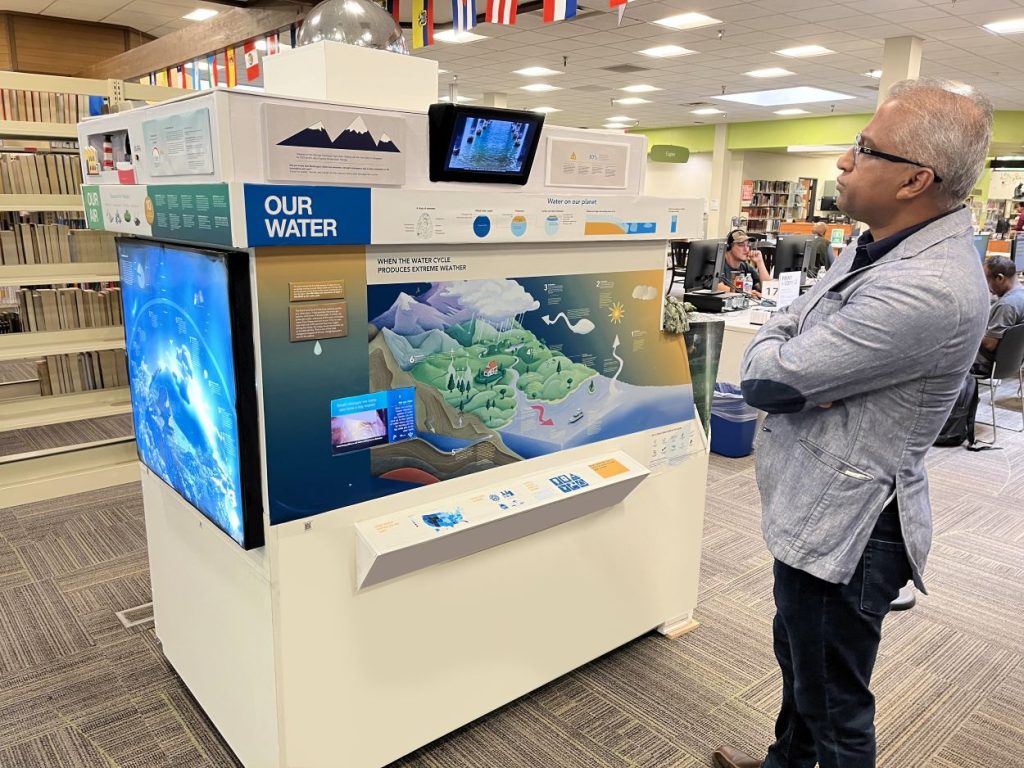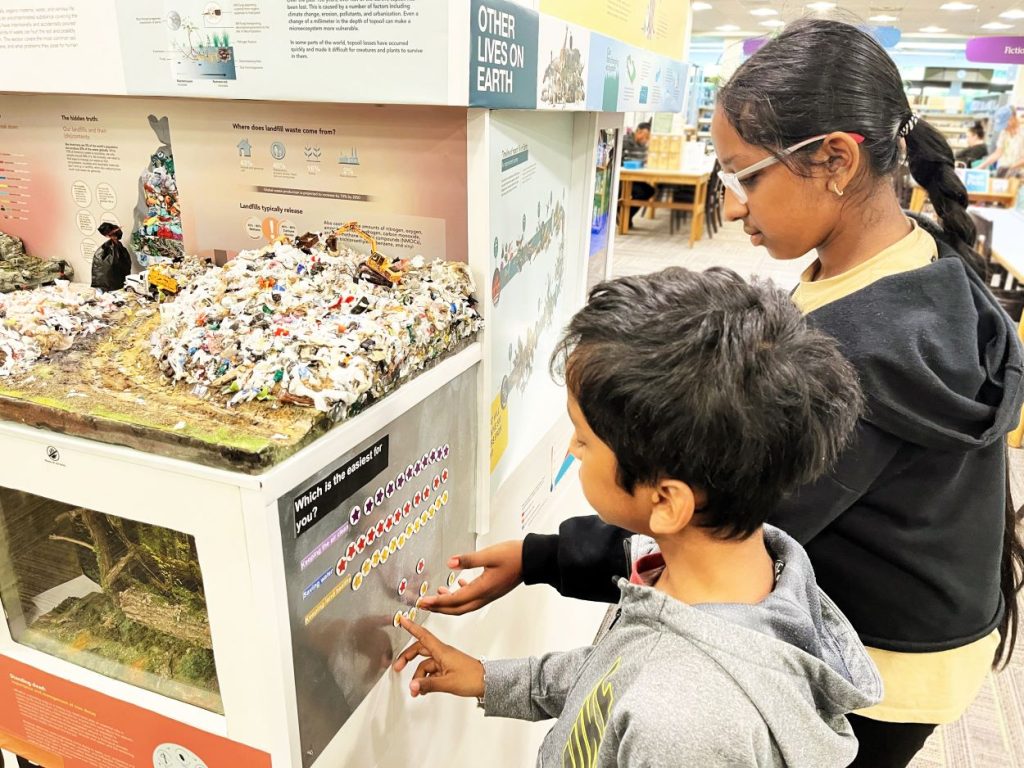In an era where climate change poses one of the greatest challenges to our planet, initiatives like Oboni are crucial in fostering awareness and action. Originating in Washington, Oboni is a unique micro-museum that is traveling across the country, focusing on regions most in need of climate education.

From September 6-17, visitors to the Lynnwood Library had the opportunity to engage with Oboni firsthand. The name “Oboni” derives from ancient Sanskrit, meaning “Planet,” reflecting the project’s mission to connect individuals and communities to the pressing issue of climate change.
A Local Initiative with Global Aspirations
Oboni is not just a display; it’s an interactive educational experience designed to highlight the importance of both individual and community actions in combating climate change. This nonprofit initiative was created by artist and designer Shazzad Khan, who emphasizes the need for an inclusive approach to climate education.

“We are all facing a climate emergency, and it’s important that everyone is informed and empowered to act,” Khan stated.
Although the initiative began in Washington—a state known for its environmental awareness—Khan aims to address the knowledge gaps in communities that lack crucial climate information. “We want to reach societies that might not have access to the resources and education available in more informed areas,” he explained.
Tailored Solutions for Vulnerable Communities
The current version of Oboni is specifically designed for residents of the most climate-vulnerable regions in the U.S. This approach allows the museum to focus on localized climate issues, tailoring its exhibits to meet the unique needs of each community.
“We conduct initial research and design the micro-museum to deliver information that helps the local community take action,” Khan elaborated.

During its time in Lynnwood, the project garnered significant interest, leading to invitations from other libraries and schools eager to host Oboni. However, Khan emphasizes a broader vision: “We are considering opportunities to bring a version of Oboni to remote areas around the world, where communities lack access to the resources, we often take for granted.”
Supporting Oboni’s Mission
To sustain its outreach, Oboni has launched a crowdfunding platform. Supporters can contribute through www.myoboni.com, making tax-exempt donations to help fund the project’s expansion and development.
As Khan puts it, “We need funding and support to reach the communities that will benefit the most from this initiative.”
Oboni stands as a testament to the power of grassroots efforts in addressing global issues. By fostering awareness and encouraging action at the local level, this micro-museum aims to inspire change. With its mission to educate and empower, Oboni is not just a museum—it’s a movement toward a more informed and engaged society in the face of climate change.
Author: Gerti Katro












